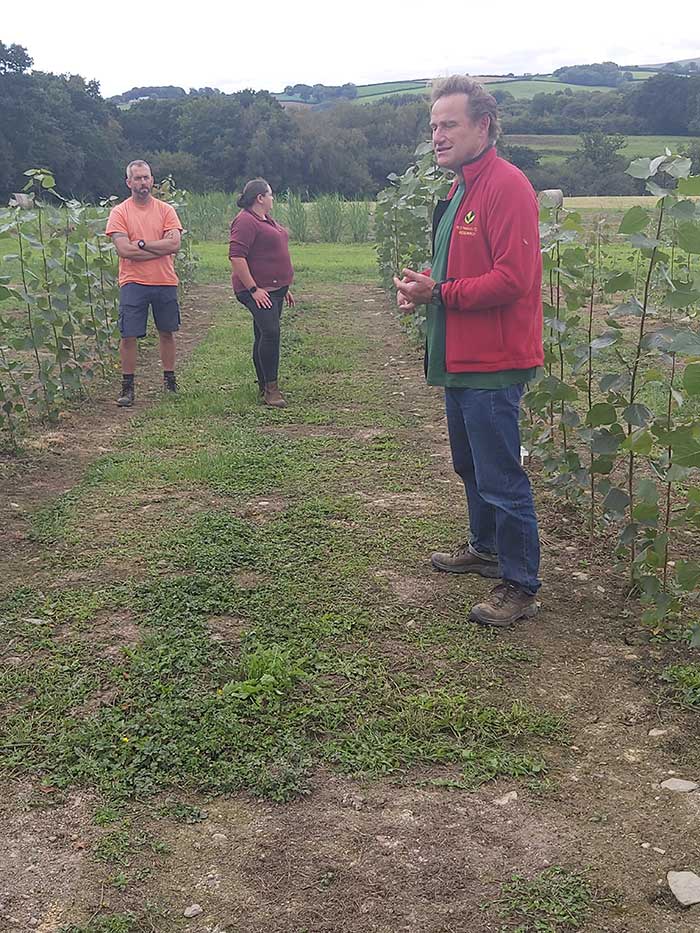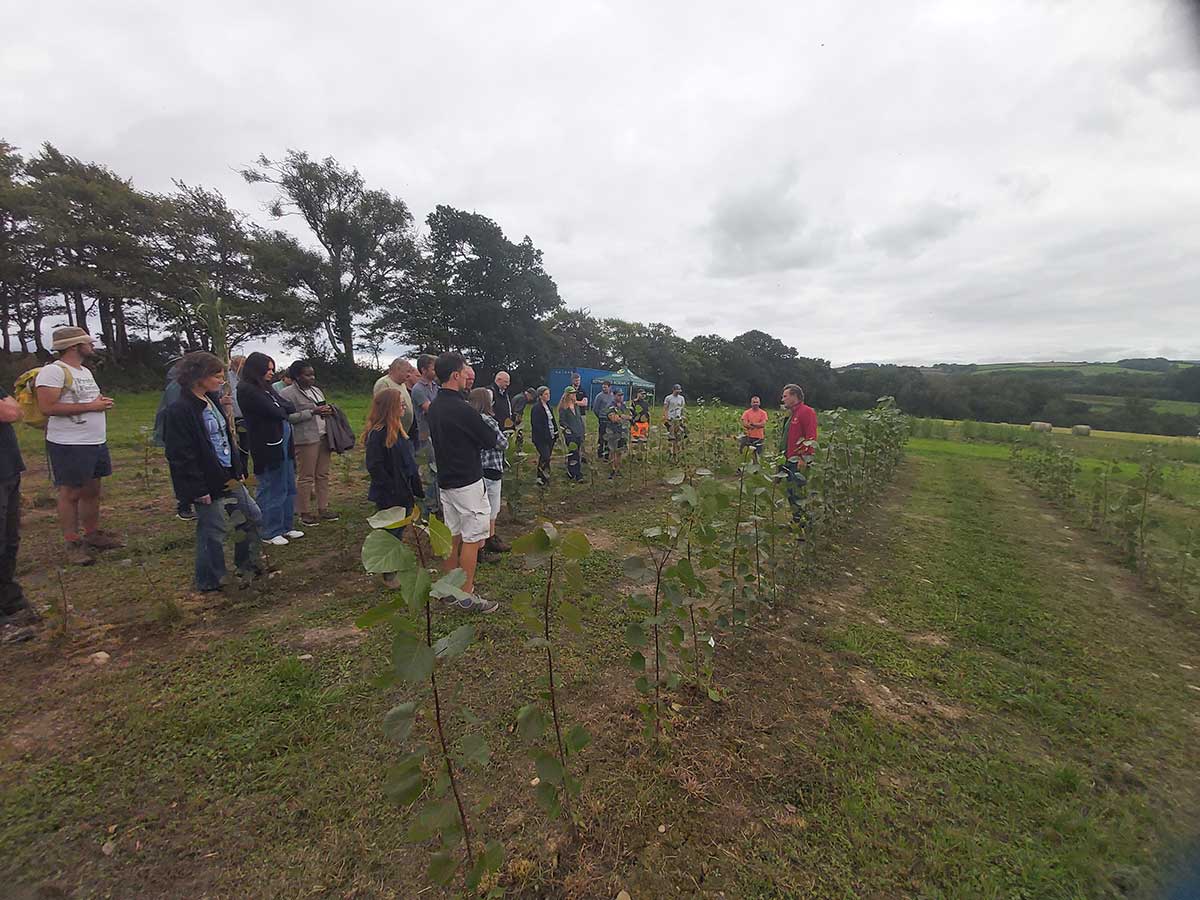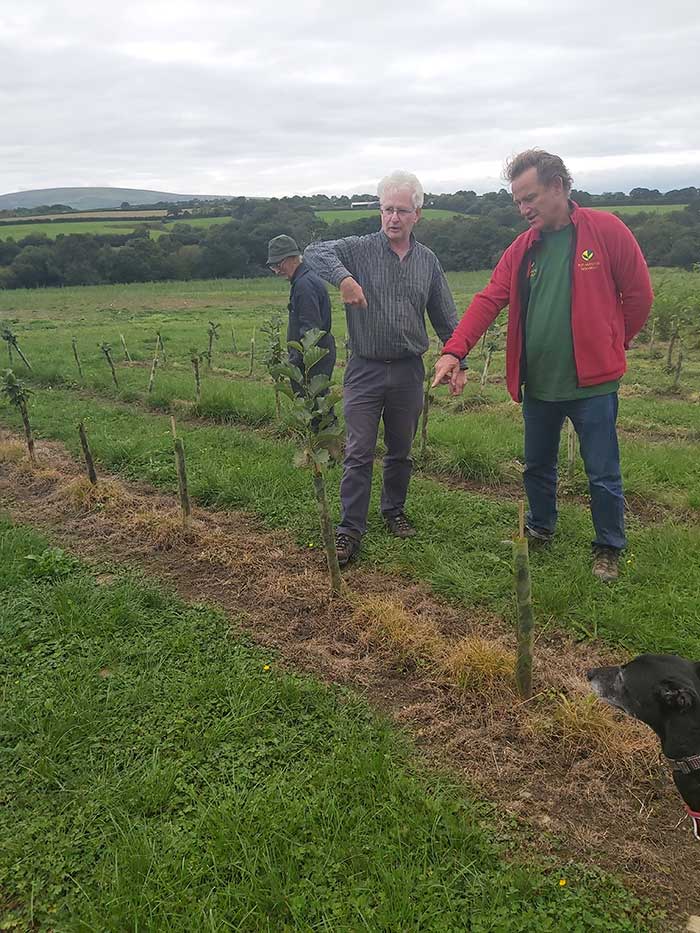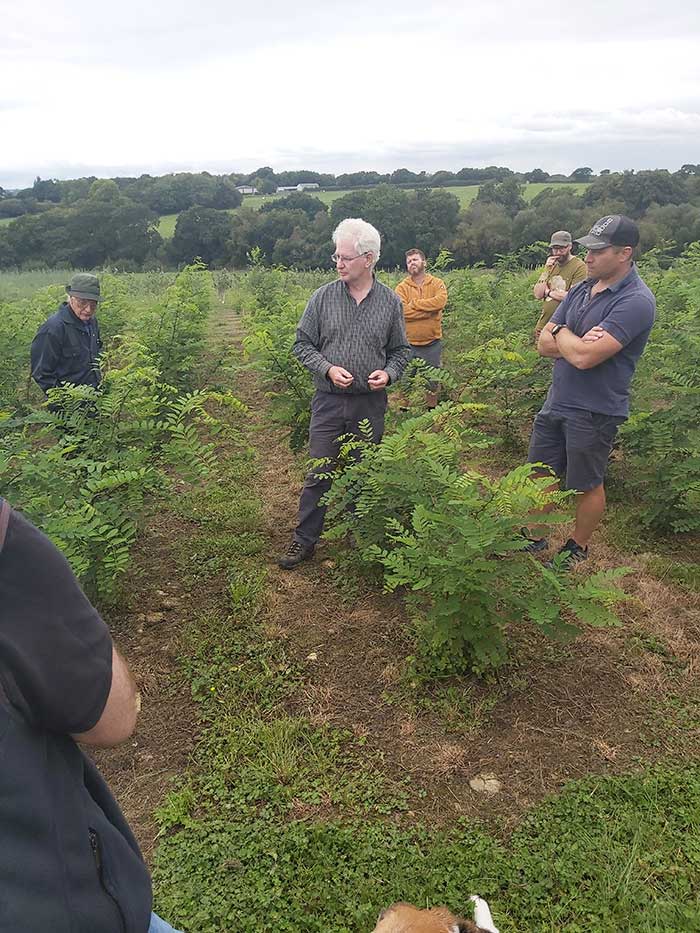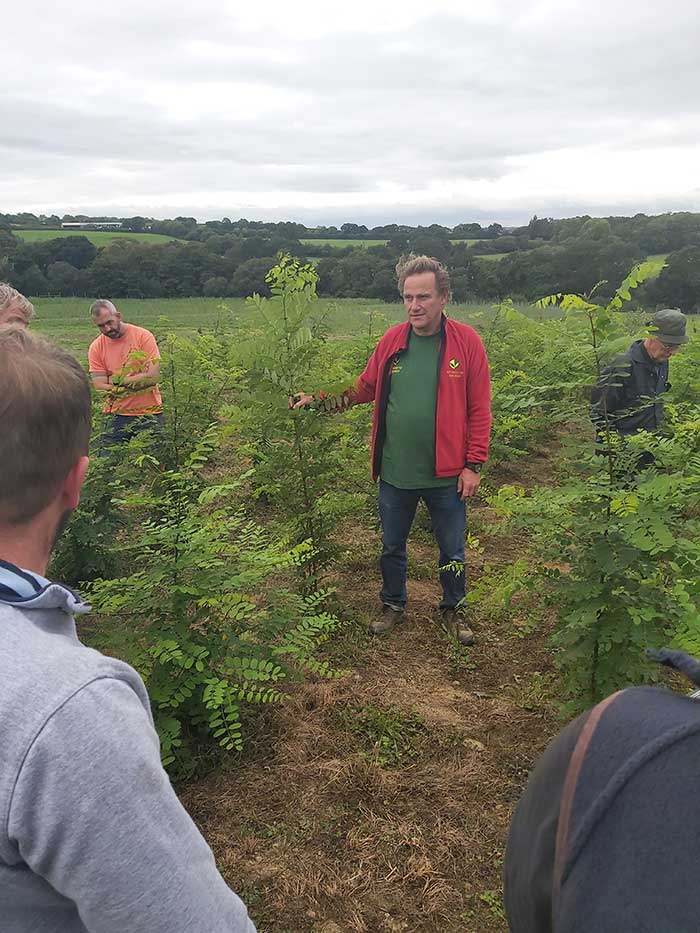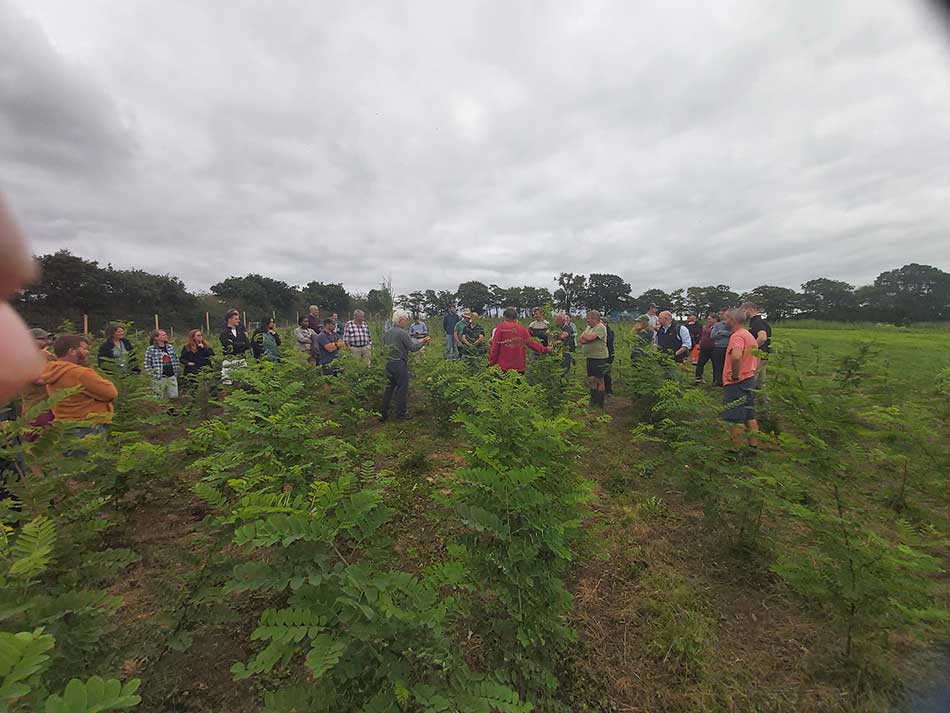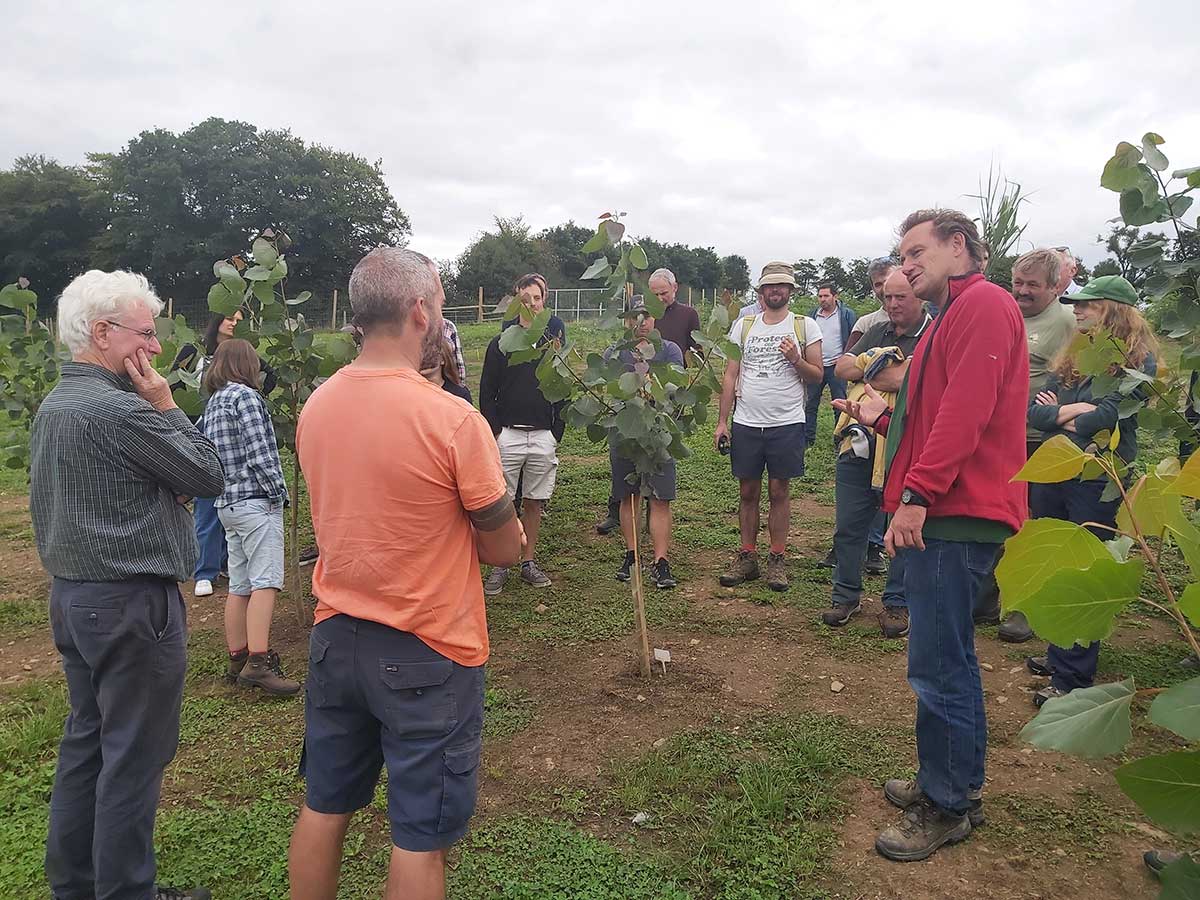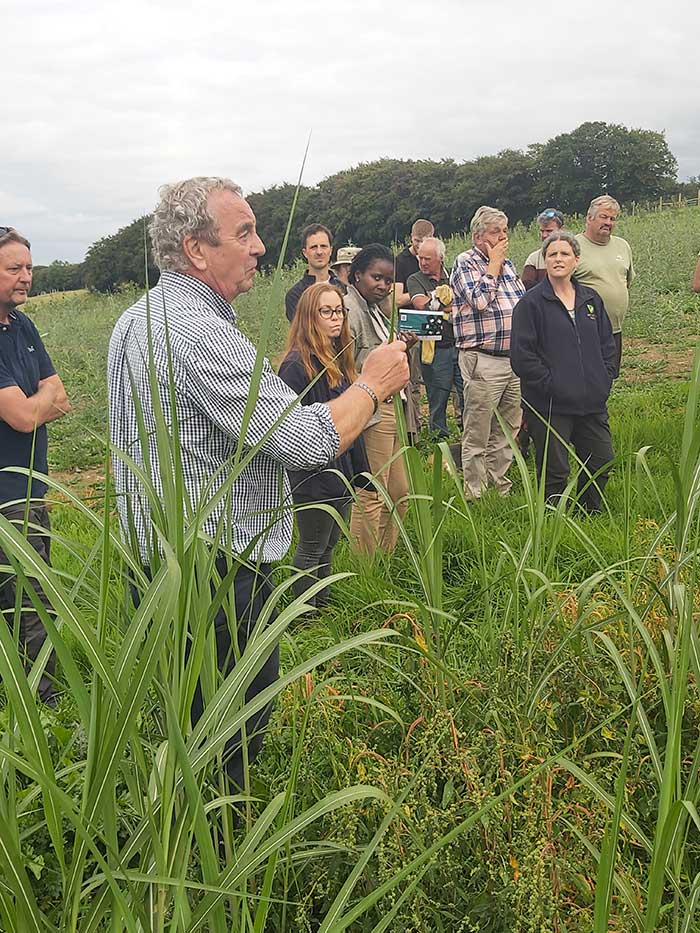Nick Allison, the hub site manager at Rothamsted Research’s Noth Wyke Farm , kicked off the Biomass Connect demo event with warm welcome after attendees had gathered over cups of coffee and biscuits. The mood was set for an exciting day as Nick provided an overview of the site, setting the stage for what promised to be a day filled with insights and innovation.
The spotlight turned to Will Styles, Biomass Connect at IBERS, who opened the meeting by shedding light on the organisation’s mission to curate robust information for the emerging biomass industry, empowering stakeholders to make informed decisions. Will encouraged all attendees to explore the Biomass Connect website and sign up for their newsletter before passing the baton to Kevin Lindegaard from Envirocrops.
Kevin used his time to showcase his work on a web-based app designed to assist landowners in making crop-related decisions. The app is aimed to optimise crop selection and maximize profitability, with an added educational component for children and adults. The group was captivated by this innovative tool.
Next, Dr. Robert Dunn took the stage, sharing insights into his project on silviculture and agroforestry at North Wyke. He delved into the complexities of carbon storage at various soil depths and soil types at various farms, highlighting the unique carbon capture capabilities of each site. Robert also discussed tree planting strategies, including planting trees in alleys and as clusters as natural evolving trees in grassland.
Following the presentations, the group embarked on a tour of the plot sites, led by Nicholas. They provided an informative and animated walkthrough of tree plantings, with Kevin Lindegaard and Bryan Elliot adding valuable insights. The tour sparked numerous discussions and questions about tree establishment, varietal differences, and tree-guarding methods.
One particularly intriguing discussion centered around spiral and mesh tree-guards. Attendees debated the merits of each, with spirals offering protection against pests and herbicides but potentially creating a damp environment conducive to disease. In contrast, mesh types allowed for air circulation and natural shading, favouring tree growth.
Emphasising the importance of keeping sapling surroundings free of vegetation during the first year of growth, attendees explored alternatives to chemicals, such as willow woodchip and wool mulch. Various planting methods were discussed, including T-notch for poplar trees and augered soil for eucalyptus, with an emphasis on creating companion-free zones for root development. The issue of harvest and timing was brought up and tracked machines were favoured to help reduce ground damage during wetter periods
The conversation then turned to mycorrhizal networks in soils and their role in tree establishment, with Bryan Elliot suggesting that cultivated soil might lack woodland strains and that trees don’t thrive in fields without shade or protection.
The discussion shifted to Miscanthus, with Mike Cooper from Miscanthus Nurseries sharing practical insights. He stressed the importance of a seedbed with marble-sized aggregates for optimal establishment of miscanthus rhizomes in the first year. Mike also discussed the end market, highlighting the potential to harvest up to 10 tonnes of dry matter per hectare. This material could be baled, sold, or processed for various purposes, from burning for energy, bedding to packaging material and that he had a ready market for any growers wanting an outlet for their crop
Furthermore, Mike pointed out the role of miscanthus in mitigating nutrient loss and its suitability for wastewater systems and housing development. The crop could serve as a nature-based solution, particularly for addressing housing planning challenges.
The event attracted a diverse audience of approximately 50 individuals from various sectors of the industry, including farmers, foresters, consultants, and researchers. After the enlightening tour of the plots, the group reconvened at North Wyke for a debrief and coffee.
Throughout the day, lively and constructive discussions laid the groundwork for the biomass industry’s development. Attendees left feeling enthusiastic and well-informed, eager to participate in future events dedicated to advancing the industry.
